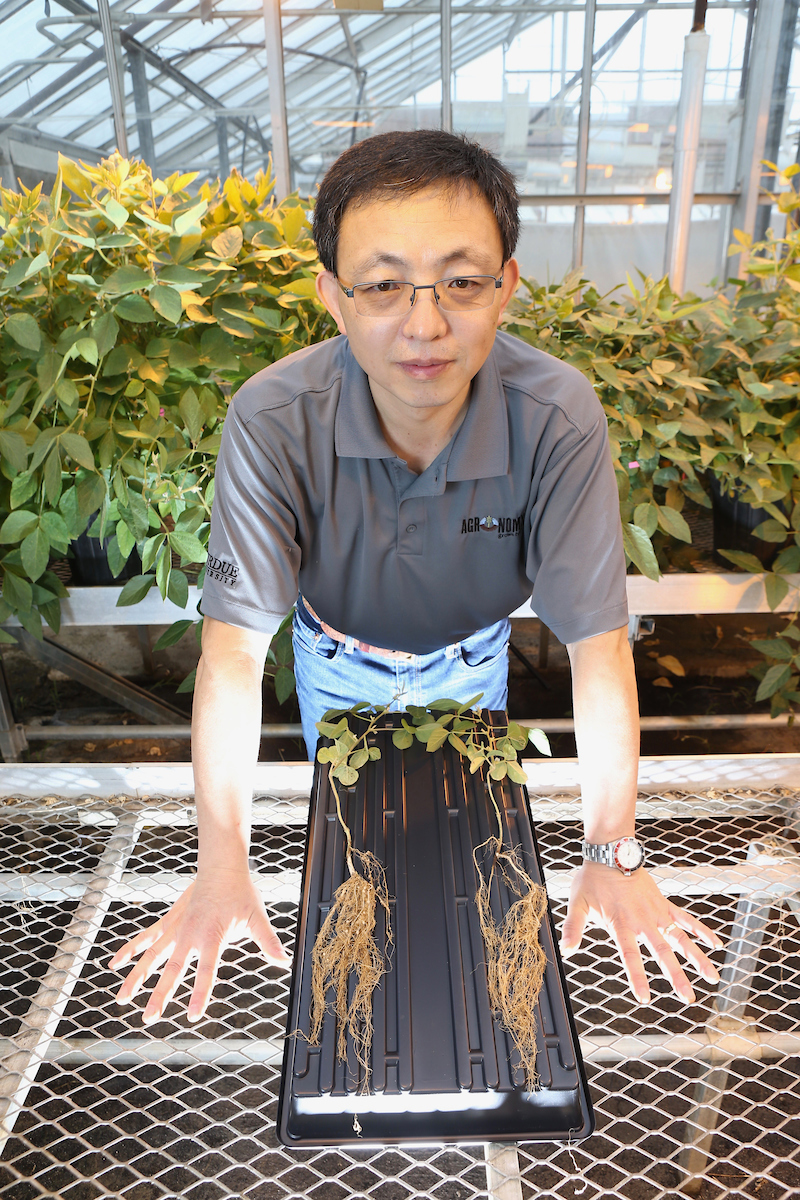Jianxin Ma appointed Dean’s Chair in Soybean Genomics
Purdue University’s Board of Trustees has approved Agronomy Professor Jianxin Ma’s appointment to the Dean’s Chair in Soybean Genomics.
Karen Plaut, the Glenn W. Sample Dean of the College of Agriculture, describes this appointment as both honoring and supporting Ma’s work. “Dr. Ma is an international leader in the field of soybean genomics and an invaluable member of our faculty. This appointment acknowledges his many contributions and portends the accomplishments we know are yet to come.”
Ma said genomics research not only advances our fundamental understanding of genome structure and evolution, but also provides powerful tools for dissecting important traits in plants and for translating acquired new knowledge into solutions for precision crop enhancement.
“I am deeply honored to be offered this position and very grateful to the leaders in my college, department and the university for their tremendous support,” said Ma. “Over the past decade, our Purdue team has become a leader in developing genomic resources and tools for both basic and applied research in soybeans. Purdue's ever-strong support will enhance our capability to test new ideas, conduct innovative research, and assemble large research teams on campus and across the nation to tackle some of the grand challenges we face in agriculture.”

Ma said he has built the success of his research program based on translating basic discoveries in the lab to real-life changes in the work taking place in the fields, working directly with farmers to address their needs.
Ma has authored 103 peer-reviewed publications, been the primary inventor on three patents and patent applications, and received international accolades for his research, most recently for his work in identifying novel genes for broad spectrum resistance to root and stem rot in soybean plants.
Ma said it is hard for him to claim the celebration of his work without acknowledging the colleagues and students who’ve played crucial roles in every step of the way.
“Any honor I receive certainly also belongs to my former and current lab members and the collaborators I have had the good fortune to work with over the years.”
Ma said he looks forward to applying his translational genetics and genomics work with CRISPR-based gene-editing and other technologies to precision breeding of new cultivars with increased grain yield, improved nutritional values and enhanced resilience to climate change.






